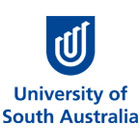Bachelor of Aviation (Pilot)
Bachelor of Aviation (Pilot)
What you’ll learn You will undertake general studies in aviation including an introduction to human factors and safety management systems. You will do Flight Training Theory 1 and Commercial Pilot Theory, taught by instructors from the flight training provider. These courses prepare you for CASA Commercial Pilot Licence theory examinations….
Categories
COURSE DESCRIPTION
What you’ll learn
You will undertake general studies in aviation including an introduction to human factors and safety management systems. You will do Flight Training Theory 1 and Commercial Pilot Theory, taught by instructors from the flight training provider. These courses prepare you for CASA Commercial Pilot Licence theory examinations.
As your studies progress you will explore more advanced and theoretical areas including meteorology, law, human factors and aspects of the flight and performance of large aircraft systems. You will also study communication and aviation management. Your technical studies will include aerodynamics, heavy aircraft systems, navigation and risk and safety management.
Over the course of the degree, you can select up to four electives from the Bachelor of Aviation (Management) degree and other aviation-related electives.
Flight training is done via the Graduate Diploma in Aviation and there are a number of entry requirements that must be fulfilled before you can begin. Please read the Graduate Diploma in Aviation page carefully.
Career outcomes
Your career
Within the next 20 years, it is predicted there will be a demand of 837,000 new personnel required in the Asia-Pacific region. Although the aviation industry is currently experiencing a downturn driven by the COVID-19 pandemic, the long-term need remains robust with anticipation of growth to the sector in coming years.1
Here are some careers to consider:
- commercial pilot working for international, national or regional airlines
- corporate and business aviation
- flight instructor
- defence pilot
- firefighting pilot
- medical and air ambulance pilot
REQUIREMENTS
Applicants are required to meet one of the following criteria with a competitive result, and demonstrate that they fulfil any prerequisite requirements and essential requirements for admission:
Recent secondary education:
Meet any prerequisite requirements with a minimum grade of C- or equivalent and
Complete secondary qualifications equivalent to SACE, or
Complete the International Baccalaureate Diploma with a minimum score of 24 points
or
Higher education study
Complete or partly complete a recognized higher education program at a recognized higher education institution
or
Vocational Education and Training (VET)
Complete an award from a registered training organization at Certificate IV or above
or
Work and life experience
Hold completed secondary qualifications equivalent to SACE obtained more than 2 years in the past
English language requirements:
IELTS score of 6.0; TOEFL iBT score of 60 with Reading and Writing not less than 18; TOEFL paper-based test (PBT) score of 550 with TWE of 4.5; Cambridge CAE/CPE score of 169; Pearson’s test of English (Academic) (PTE) score of 50 with Reading and Writing communicative scores not less than 50; CELUSA score of AE4.
EDUCATIONAL INSTITUTION
The University of South Australia is a globally connected and engaged university with industry-informed teaching and research that is inventive and adventurous. Ranked in the world’s top 50 under 50^ and with 100% of assessed research rated at or above world-class*, the University is young, innovative and offers students the chance to gain real-world experience.Focused on life beyond the classroom, the University of South Australia offers a practical approach to teaching and learning. Degrees are designed in partnership with industry, giving students opportunities to gain the latest insights and trends and ensuring they graduate career ready.^Ranked in the World’s Top 50 Under 50 – Ranked #29, 2021 QS Top 50 Universities Aged Under 50 and Ranked #46, 2022 THE Young University Rankings*2018 Excellence in Research for Australia (ERA), 4-digit Fields of Research




